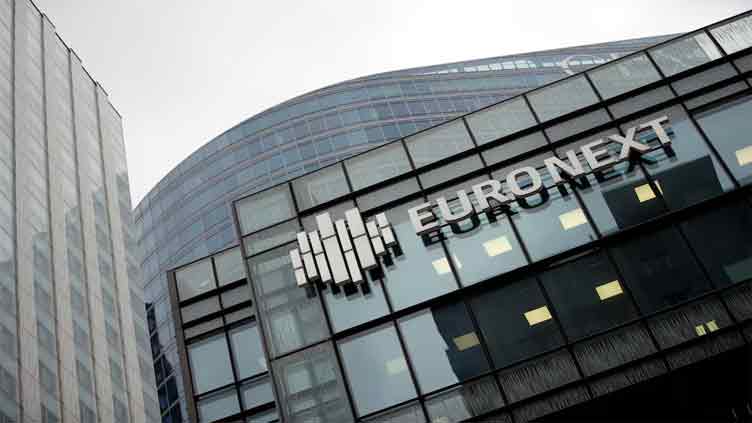European stocks rally ahead of first ECB rate cut in nearly five years

Business
Canada on Wednesday became the first G7 country to go for rate cuts in this cycle
LONDON (Reuters/Web Desk) – World stocks were on the brink of an all-time high and the euro rose on Thursday ahead of what was widely expected to be the European Central Bank's first interest rate cut in nearly five years.
With the long-awaited moment about to arrive, traders pushed the pan-European STOXX 600 up 0.66 per cent by 0920 GMT and watched the MSCI 47-country main world index inch to within a point of a seemingly inevitable new peak.
On Wednesday, the Bank of Canada trimmed its key policy rate, the first G7 country to do so, in a widely expected move that will ease pressure on highly indebted consumers, but indicated further easing would be gradual and dependent on data.
"Let's just enjoy the moment for a bit," said Governor Tiff Macklem at a press conference after announcing the central bank had reduced Canada interest rates to 4.75pc from 5pc, the first cut in four years.
Sentiment was almost at frenzy stage again. Wall Street's S&P 500 and Nasdaq had both set new records on Wednesday after a now $3 trillion AI juggernaut Nvidia swept past Apple to become the world's second-most valuable company, behind Microsoft.
The euro was on the rise again too. It added another 0.1pc to its 2pc rise over the last month to reach $1.0880, although most traders were sitting on their hands, waiting to see what the ECB signals later.
All 82 economists polled by Reuters expect the Frankfurt-based central bank to trim the eurozone interest rate to 3.75pc from the record high 4.0pc level it has been at since September, but what it does after that remains subject to much debate.
Read more: ECB rate cuts expected from a record high of 4pc
EU elections happen in the coming days but stronger-than-expected data over the last few weeks has raised doubts about how many more cuts will be justified this year.
Eurozone inflation rose more than predicted in May, fuelled by price growth in the services sector, which some policymakers single out as especially relevant because it reflects domestic demand.
This was likely to mirror larger-than-expected wage hikes in the first quarter of the year, which boosted consumers' battered disposable income after years of below-inflation pay hikes.
Michael Metcalfe, head of global macro strategy at State Street Global Markets, said for this meeting though, it was hard to remember a central bank move better flagged in advance.
"Maybe today is going to mark something of a watershed as they (ECB) are not going to be able to be as clear with their forward guidance," Metcalfe said
Considering the recent robust data, "what follows is now a much harder question for markets - and the ECB - to assess," he added. "It could be a classic buy-the-rumour-sell-the-fact and the euro get some support from here."
GOLDILOCKS STORY
The Bank of Canada pipped the ECB to being the first G7 country to cut rates in this cycle on Wednesday. The US Federal Reserve meets next week although isn't expected to move until September. By contrast, the debate at the Bank of Japan, which meets the week after, will be on if and when to raise rates.
Canada's dollar trimmed some of the losses from its post-cut dip on Thursday to leave it at C$1.3679 per US dollar.
In the bond markets, Germany's two-year government bond yield, which is sensitive to policy rate expectations, was down 0.5 bps at 2.98pc. It hit 3.125pc on Friday, the highest since mid-November.
Benchmark 10-year US Treasury yields were sitting near their lowest in two months, after data this week hinted that the US labour market is finally cooling.
That included private US payrolls on Wednesday and a report on Tuesday that showed job openings fell in April to the lowest in more than three years.
Markets are now pricing nearly two full 25 basis point US interest rate cuts again this year, with a September move seen as a 68pc chance compared to 47.5pc last week.
"We're still in the Goldilocks range so bad economic news has been good for equities as Fed rate cuts are back on the table," said Ben Bennett, Asia-Pacific investment strategist at Legal And General Investment Management.
Investor attention will soon turn to the US nonfarm payroll report for May due on Friday, with a Reuters poll of economists expecting it to increase by 185,000 jobs.
"We need that to be around 100-150k to maintain the Goldilocks narrative," Bennett said. "Much higher than that and yields could move back up, but if we get zero or negative, then we could be talking about a hard landing again."


